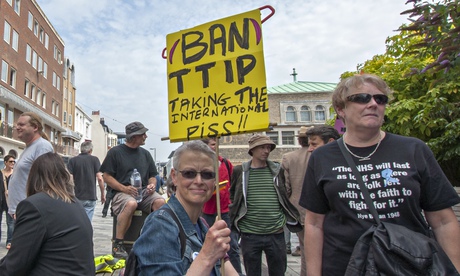When is an ad not an ad? When it's a "suggested" post, or a "promoted" tweet, or a "special offer" beamed to your e-reader. Today's giant tech corporations routinely claim that people like adverts (especially adverts that are "relevant"). Yet they are notably shy about admitting that their adverts are actually adverts. When Facebook updated its Terms of Use on 15 November, a sub-clause in the section about "Advertisements and Other Commercial Content Served or Enhanced by Facebook" read: "You understand that we may not always identify paid services and communications as such." In other words: we'll show you adverts while pretending they are something else.
Unless you pay extra for your Kindle Fire, meanwhile, it sucks down Amazon adverts from the cloud and displays them on the lockscreen. These are not called adverts either; they are called "special offers". Here, Amazon is just borrowing the brutally inverted semantics of the supermarket, where a request that you buy something is instead called an "offer", and a request that you buy something they really want to get rid of is a "special offer". But the fact that the cheaper Kindle Fire is the one that comes with "special offers" adds an extra wrinkle of fruitful confusion: it almost seems as though that makes it better than the more expensive, ad-free model.
Advertising, of course, has long sought to euphemise the practice of itself. (The commercial sense of "advertisement" hijacked a word extant since the early 15th century for, as the OED puts it, "the action or an act of informing or notifying".) In the 20th century, a common euphemism for "paid for by advertisers" was "sponsored", and broadcast audiences were alerted to an incipient ad break by the announcement of "a word from our sponsors". The sponsors in question were not godparents (the original, ecclesiastical meaning of the noun "sponsor"), nor were they former alcoholics meant to help you avoid ducking into a bar for a very large whisky.
Weaselly terminology sometimes loses all power to deceive and so must be replaced with some new attempt at hoodwinking its targets. (This is often called the "euphemism treadmill".) And so, though "sponsored posts" are still around in the blogosphere, the state of the art in Unspeak vocab for digital advertising has moved on.
To Google's credit, what used to be called "sponsored links" in search results are now plainly "ads". But other corporations use ways to avoid saying the word "advert" that are marinated in an oleaginous sauce of social virtue. A "suggested" post on Facebook is an advert injected directly into your timeline, but the nomenclature leaves it purposefully vague as to who actually "suggested" it. Perhaps Facebook hopes that, at least subconsciously, you will associate the "suggestion" with friends rather than with adbots.
Meanwhile, Twitter prefers to call the adverts injected directly into your timeline "promoted" tweets. It's inspiring to think of a tweet starting off as a humble private and becoming, through various acts of battlefield valour, a captain. A promoted tweet, you might be bamboozled into supposing, must really have deserved its magical elevation to the centre of your attention.
Twitter's own support documentation offers a pleasantly creative explanation. "Promoted Tweets," it burbles, "are ordinary Tweets purchased by advertisers who want to reach a wider group of users or to spark engagement from their existing followers." You have to admire that. "Promoted Tweets are ordinary tweets," it begins soothingly. Just ordinary tweets: nothing to see here. They are no less ordinary, apparently, for being "purchased by advertisers". This is a bit like saying that billboard ads are "ordinary enormous pictures" that just happen to be erected in public spaces by noble contributors to giant ambient art.
In social media, then, adverts are purposefully misdescribed as belonging to the same dynamic of community and discovery as other messages – even though the whole point of such adverts is that someone has paid to short-circuit the network and get their message "shared" directly to unwitting strangers.
The melancholy upshot of all this is that, since anything might be an advert, we apparently need new back-formation to describe things that definitely are not adverts. Hence the rather pitiable marketing coinages "organic stories" (on Facebook) and "organic tweets" (on Twitter). As these are currently used, it seems that "organic tweets" are tweets written by companies but not paid for (so not "promoted"), while "organic stories" are the ordinary posts by your friends on Facebook, grown using no artificial fertilisers or pesticides.
I'm not convinced that this has really been thought through. Such a use of "organic" might easily be taken to imply that the non-organic messages – ie adverts – are saturated in caustic chemicals, and that their mass production will result in digital ecocide. Advertisers would be better advised to exploit the rhetorical value hierarchy of food production by insisting that their omnipresent output is actually artisanal heirloom spam.











